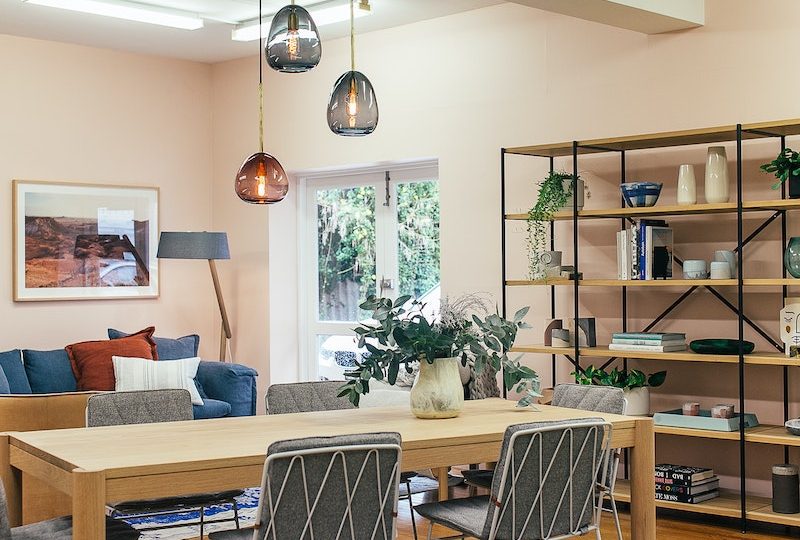This article provides a comprehensive analysis of shared accommodation, covering its advantages and disadvantages, as well as its suitability for different lifestyles and personalities. By examining the potential benefits of lower costs and increased socialization, as well as the potential drawbacks of limited privacy and shared responsibility, this article aims to help readers determine whether shared accommodation is a viable option for their needs and preferences.
Introduction
 In recent years, shared accommodation has become increasingly popular, particularly among young adults and those on a tight budget. The idea of living with roommates and sharing expenses may seem appealing to some, while others prefer the privacy and independence of living alone. In this article, we’ll examine the benefits and drawbacks of shared accommodation, and help you determine whether it’s the right choice for you.
In recent years, shared accommodation has become increasingly popular, particularly among young adults and those on a tight budget. The idea of living with roommates and sharing expenses may seem appealing to some, while others prefer the privacy and independence of living alone. In this article, we’ll examine the benefits and drawbacks of shared accommodation, and help you determine whether it’s the right choice for you.
Advantages of Shared Accommodation
One of the primary advantages of shared accommodation is reduced living costs. By splitting expenses such as rent, utilities, and groceries, roommates can significantly decrease their individual expenses. This can be particularly beneficial for those living in expensive cities, where the cost of living can be exorbitant.
Another advantage of shared accommodation is the increased socialization opportunities. Living with roommates can provide a built-in social network, making it easier to make friends and connect with like-minded people. This can be particularly beneficial for those who are new to a city or looking to expand their social circle.
Finally, shared accommodation can also mean sharing responsibilities. Chores such as cleaning, cooking, and grocery shopping can be divided among roommates, making it easier for everyone to manage their workload.
Disadvantages of Shared Accommodation
While there are many benefits to shared accommodation, there are also some potential drawbacks to consider. One of the primary disadvantages is limited privacy. When living with roommates, it can be challenging to find alone time, and there may be limited personal space. This can be a significant drawback for those who value privacy and independence.
Another potential drawback of shared accommodation is compatibility issues with roommates. Living with someone who has different lifestyles, habits, or personalities can be challenging, and conflicts may arise. Roommates who don’t get along can create a stressful living environment, which can be difficult to manage.
Finally, finding suitable accommodations can be a challenge when looking for shared accommodation. It may take time to find a place that fits your needs, and there may be a limited selection of suitable options available.
Suitability of Shared Accommodation
Shared accommodation may be suitable for certain lifestyles and personalities. For example, those who are outgoing and social may thrive in a shared living environment, while those who value privacy and alone time may prefer living alone. Additionally, shared accommodation can be a suitable option for those who are on a tight budget, as it can significantly reduce living expenses.
However, shared accommodation may not be suitable for everyone. Those who are introverted or require a lot of alone time may find it challenging to live with roommates. Additionally, those who have specific living requirements, such as pets or specific living conditions, may find it difficult to find suitable accommodations in a shared living environment.
Conclusion
In conclusion, shared accommodation can be an excellent option for those looking to save money, increase socialization opportunities, and share responsibilities. However, it may not be suitable for everyone, and there are potential drawbacks to consider. When deciding whether shared accommodation is the right choice for you, consider your lifestyle, personality, and living requirements, and weigh the benefits and drawbacks carefully. Ultimately, the decision to live in shared accommodation is a personal one and should be based on your individual needs and preferences.
How to Find Suitable Shared Accommodation
If you’ve decided that shared accommodation is the right choice for you, the next step is to find a suitable living arrangement. Here are some tips to help you find shared accommodation that meets your needs:
Determine Your Budget: Before starting your search, determine how much you can afford to spend on rent, utilities, and other expenses. This will help you narrow down your options and avoid wasting time on accommodations that are out of your price range.
Consider Your Ideal Roommates: Think about the kind of roommates you’d like to live with, and what kind of living situation would be best for you. For example, do you prefer to live with people of a similar age, gender, or lifestyle? Do you prefer to live with people who share similar interests or hobbies?
Search Online: There are several websites and apps that can help you find shared accommodation, such as Craigslist, Roomster, and Roomi. These sites allow you to search for available rooms or roommates in your area, and provide detailed information about the accommodations and potential roommates.
Attend Open Houses: Once you’ve identified some potential accommodations, attend open houses to get a better sense of the living situation and the people you’ll be living with. This will also give you an opportunity to ask questions and get a feel for the living environment.
Discuss Living Arrangements: Once you’ve found potential roommates and accommodations, discuss living arrangements and responsibilities with them. This will help avoid conflicts down the road, and ensure that everyone is on the same page.
Other Accommodation Options to Consider
While shared accommodation can be an excellent option for some, it’s not the only choice. Here are some other accommodation options to consider:
Living Alone: Living alone can provide the ultimate privacy and independence, but it can also be more expensive. If you can afford it, living alone can be a great option for those who value alone time and personal space.
Renting a Room in Someone’s Home: Renting a room in someone’s home can be a good alternative to shared accommodation, as it provides some privacy while still allowing you to share expenses. This option may be ideal for those who prefer a quieter living environment.
Renting an Apartment with a Partner or Friend: Renting an apartment with a partner or friend can be a good option for those who want to live with someone they know and trust. This option allows you to split expenses while maintaining some privacy and independence.
Conclusion
Shared accommodation can be an excellent option for those looking to save money, increase socialization opportunities, and share responsibilities. However, it’s not the right choice for everyone, and there are potential drawbacks to consider. When deciding whether shared accommodation is the right choice for you, consider your lifestyle, personality, and living requirements, and weigh the benefits and drawbacks carefully. Additionally, be sure to consider other accommodation options, such as living alone or renting a room in someone’s home. Ultimately, the decision to live in shared accommodation is a personal one and should be based on your individual needs and preferences.









